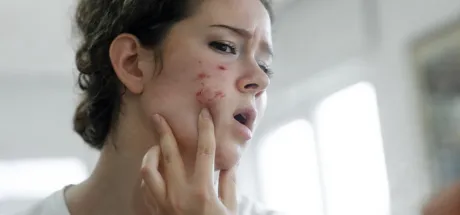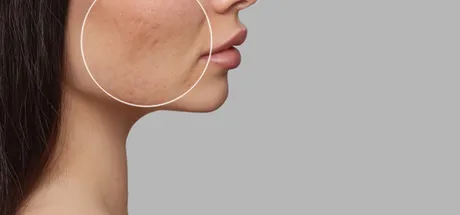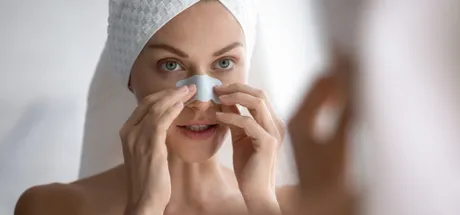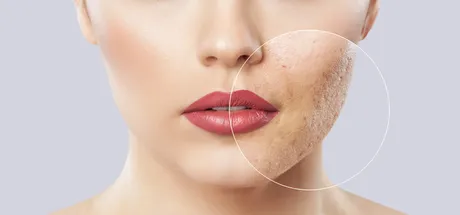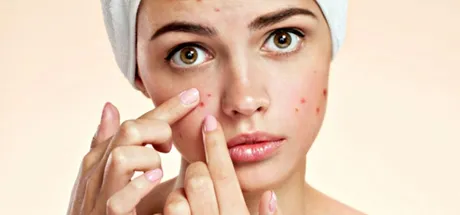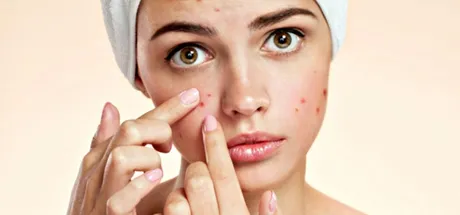What is Acne?
Acne is a common skin condition that causes pimples, blackheads, whiteheads, and sometimes deeper cysts or nodules on the skin. Common areas that are affected include the face, neck, chest, back, and shoulders. It typically arises when hair follicles become clogged with oil and dead skin cells leading to the growth of bacteria and inflammation. Hormonal changes, genetics, certain medications, and lifestyle habits can also contribute to the development of acne. Acne can vary in severity, ranging from mild occasional breakouts to more persistent and severe forms requiring medical intervention.
Symptoms of Acne
The symptoms of acne can vary depending on the severity and type of acne, but commonly include:
- Pimples: Small red bumps on the skin that can be tender to the touch and uncomfortable.
- Whiteheads: Closed clogged pores that appear as small, white bumps on the skin's surface.
- Blackheads: Open clogged pores that have a dark appearance due to the oxidation of the trapped substances.
- Papules: Small red bumps that can be tender to touch.
- Pustules: Pimples filled with pus, often with a white or yellow centre.
- Nodules: large hard lumps that build up beneath the surface of the skin.
- Cysts: the most severe type of spot caused by acne. These are large pus-filled lumps that carry the greatest risk of causing permanent scarring.
Other common symptoms may include oily skin, inflammation, itching, burning sensations and in severe cases, scarring.
What causes Acne?
Acne can be caused by a range of factors. Generally, acne is caused by changing hormone levels during puberty, the menstrual cycle or pregnancy. This is because the body is experiencing change and might produce larger amounts of oil than usual making it more likely for the skin to suffer from blocked pores that creates inflammation. This inflammation can then become infected. Heavy makeup, sweating and tight clothing can also cause clogged pores and increase acne problems.
How can acne be treated effectively?
Effective acne treatment often includes topical therapies like Acnecide Gel containing benzoyl peroxide. Ingredients that reduce oil, clear pores, and minimize bacteria can significantly improve skin condition. Complementary skincare routines and healthy lifestyle habits can enhance treatment results.
Can lifestyle changes help manage acne?
Yes, adopting a healthier lifestyle including a balanced diet, hydration, and stress management can support acne treatments. It's also advisable to use non-comedogenic skincare products to avoid clogged pores.
How long do acne treatments take to show results?
The time it takes for acne treatments to show results can vary greatly depending on the individual, the severity of the acne, and the specific treatment used. Generally, you should expect to use a product consistently for at least 4-8 weeks before seeing significant improvement. Some treatments may show initial results sooner, while more severe cases might require a longer period of consistent use. Patience and adherence to the treatment plan are key for the best outcomes.
